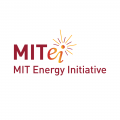
Wednesday, October 16, 2019
5:15-6:15pm
Building 62, E62-276
"The optimum allocation of available budget to joint climate control mechanisms" with John Deutch, Institute Professor, Department of Chemistry, Massachusetts Institute of Technology
In this seminar, Institute Professor Emeritus John Deutch will introduce a model that couples the modes of action of four different climate control mechanisms—emission reduction, CO2 removal, adaptation, and geoengineering—that can help limit future increases in average global temperature. The model solves for the optimal allocation of available budget to these different control mechanisms over their entire range of action. The results provide powerful insights into the factors that influence efficient climate control deployment and point to research needed to improve understanding.
About the speaker:
John Deutch is an Institute Professor Emeritus at MIT. Deutch has been a member of the MIT faculty since 1970, and has served as chairman of the Department of Chemistry, Dean of Science , and Provost. Deutch has published over 160 technical publications in physical chemistry, as well as numerous publications on technology, energy, international security, and public policy issues. He is an active member of the MIT Energy Initiative and a faculty associate of the MIT Center for Energy and Environmental Policy.
Reception with light refreshments will follow.
Please note that we will open our doors to unregistered participants 15 minutes before the event start time. To guarantee your seat, we recommend you register and arrive at least 15 minutes early.
If you are not able to attend, note there will be a high-quality recording of this seminar made available on our YouTube channel about a week following the event.






